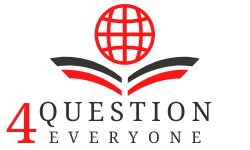People’s comments
It was in a fortune cookie.
That ignoring a problem does nothing to solve it, and that problems should be faced, not ignored
if you don’t know what this quote is referring to, you will never be able to answer this question. I think it’s proven. Guess what, you will never succeed. So it’s not that you’re not trying hard enough, it’s that you don’t have the right foundation to find the right answer.
Saying “I don’t know” in response to a question does not answer the question.
Not much “fortune”
That there is NO excuse for ignorance, so don’t be lazy to find the real answer
Source(s): My brilliant common sense 🙂
What our team says
This quote, attributed to Benjamin Disraeli, is one that often comes to mind when we think about the role of knowledge in our lives. It is easy to lament the state of things and to declare blissful ignorance, but is it really so? Is it really so desirable to know everything? In this article, we’ll look at two different cases where knowledge can actually be harmful – one where it can get in the way of solving a problem, and another where it can lead people down a dangerous path.
Definition of ignorance
When it comes to knowing the answer to a question, ignorance never solves the problem. In fact, ignorance often only serves to fuel more curiosity and lead to further investigation. This is because unanswered questions only serve to cultivate a sense of doubt in those who have not yet learned the answer. And as anyone who has tried to learn something new can attest, this kind of self-doubt is often frustrating and ultimately demotivating.
But why can’t we take things at face value? Why does skepticism arise when we don’t have all the information? The answer lies in our cognitive biases, which are thought patterns that lead us astray. Some of these biases are innate and hardwired into our brains, while others are learned and can be unlearned. But no matter how they form, they all share one common trait: they distort our perception of reality.
So what does this mean for questions we don’t know the answer to? Well, if we’re unaware of our own biases, it’s easy for them to take over and distract us from the information we need to solve a problem. And since unresolved issues usually lead to more doubts and skepticism, it can really
Example of unknown question
What does that mean? “Ignorance never settles a question.”
This quote means that if people can ignore the answer to a question, it will never stop them from trying to find out. They can be stubborn in their search for the truth, even if they don’t know it.
The role of ignorance in the law
Legal issues can never be fully resolved as they always depend on knowledge and understanding that is not always available to the legal community. This is particularly true in matters of constitutional law, which is based on a complex set of principles and values that are not always understood by all citizens.
An example of this was demonstrated in a recent case before the United States Supreme Court. In Line v. In the United States, the court considered the meaning of the term “militia” in the second amendment to the American Constitution. The issue before the court was whether gun rights extend to individuals who are not members of a formally organized military force, such as a militia.
The court eventually ruled that the term “militia” referred only to organized military forces, ruling that individuals who are not part of an armed force are barred from bearing arms. This decision was based on a lack of understanding of what militias were historically and why they were included in the Second Amendment. Had there been a better understanding of militias and their role in American history, the court might have come to a different conclusion.
This shows how legal issues can never be resolved completely or without controversy due to gaps in knowledge and understanding between
Conclusion
I hope this article has helped clear up some of the confusion surrounding the term “diversity”. By understanding what this means and why it is important, we hope you will begin to see how important it is to have a diversity of opinions in any workplace. Diversity can bring new perspectives and stimulate creativity, which is always good for business. So the next time you feel uncomfortable with someone’s opinion or feel like you don’t belong, remember: ignorance never solves a problem.
Latest posts by Answer Prime (see all)
